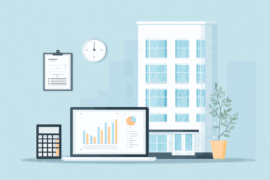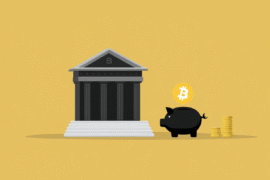This article may contain references to products or services from one or more of our advertisers or partners. We may receive compensation when you click on links to those products or services. Nonetheless, our opinions are our own.
The information presented in this article is accurate to the best of our knowledge at the time of publication. However, information is subject to change, and no guarantees are made about the continued accuracy or completeness of this content after its publication date.
- What Does It Mean for Your Phone Number to Be on the Dark Web?
- How Your Phone Number Can Compromise Your Personal Security
- Immediate Actions to Take If You Discover Your Number Online
- Long-Term Strategies to Protect Your Identity and Stay Safe
- Impact on Your Finances and Accounts
- Dark Web Basics and Definitions
- Comparison of Web Layers
- How to Safely Access the Dark Web
- Navigating the Myths of the Dark Web
- The Evolution and History of the Dark Web
- Frequently Asked Questions
- I received an email stating my personal information (name, phone number, address) was found on the dark web. Is this legitimate?
- If the email is from a legitimate source like Google One, how serious is the situation?
- Should I change my phone number?
- Are “dark web scanning” services like those offered by Google One reliable?
- What if I suspect my personal information was leaked because of a specific data breach at a company I use (e.g., a retailer)?
- Recommended Reads
What Does It Mean for Your Phone Number to Be on the Dark Web?
Having your phone number on the dark web is a serious issue. It often shows that someone has taken your personal information. This can be seen by bad people who may use it for scams. Knowing this can help you act quickly to protect yourself. Here’s why it matters:
- Higher Chance of Identity Theft: A thief may use your phone number to change passwords, get into personal accounts, or act like you. This can cause problems like credit fraud or extra charges.
- Scams and Unwanted Calls: Scammers could use your number to make annoying spam calls or gather your personal information. This can feel distressing and unsafe.
- Less Privacy: If your number is public, you can’t stop people from reaching out to you. This endangers your privacy.
Your phone number showing up on the dark web can lead to financial problems and emotional stress. You need to stay aware. Check your accounts frequently and do things to keep your personal information safe.
How Your Phone Number Can Compromise Your Personal Security
Your phone number is more than just a way to make calls; it is an important part of who you are. If it ends up on the dark web, you could face hidden risks. Identity theft, fraud, and scams are real problems. Scammers may use your phone number to pretend to be you. They can access your online accounts or even change your passwords. This can result in serious financial and personal problems.
To see the effects better, think about these possible risks:
- Unauthorized Account Access: Criminals can ask for new passwords or bypass security questions. They might use your phone number to get into your bank accounts or social media profiles.
- Phishing Attempts: You might get calls or texts pushing you to share personal information for fake reasons. This greatly raises the risk of fraud.
- Increased Spam Calls: If your number appears on the dark web, you may receive many robocalls and annoying ads. This makes it tough to tell real contacts from fake ones.
If you think your phone number might be in danger, it’s smart to keep an eye on your accounts often. You might also like to use services that check your personal information online. Taking action early can help protect your privacy and security.
Immediate Actions to Take If You Discover Your Number Online
Finding your phone number on the dark web can be scary. If you find this, you need to act fast to reduce any risks. First, change the passwords for all accounts connected to your phone number. This includes social media, banking, and other services that use your number for account recovery or two-factor authentication (2FA). Plus, enabling 2FA will add extra security to your accounts.
Next, contact your mobile service provider to explain the problem. Ask about additional security options. Many providers can help you with identity theft related to phone numbers. Pay close attention to your accounts and credit reports for any strange activity. You can set up fraud alerts or freeze your credit with the main credit bureaus for extra safety.
Long-Term Strategies to Protect Your Identity and Stay Safe
Your personal information, like your phone number, can be used for identity theft if it ends up on the dark web. To lower this risk, you need plans that protect your identity over time. A good way to do this is to watch your personal information closely. You can set up alerts to tell you if someone uses your data without permission. These alerts will let you know about any strange activity related to your accounts. By doing this, you can act fast if any issues come up.
Consider the following actions:
- Limit Sharing: Be careful about what you share on social media and public websites.
- Use Strong, Unique Passwords: Think about using a password manager. This tool can help you create and keep track of strong passwords for all your accounts.
- Enable two-factor authentication: This adds more security. It makes it harder for anyone to get into your accounts, even if they have your password.
Voted "Best Overall Budgeting App" by Forbes and WSJ
Monarch Money helps you budget, track spending, set goals, and plan your financial future—all in one app.
Get 50% OFF your first year with code MONARCHVIP
Impact on Your Finances and Accounts
Your phone number showing up on the dark web can cause big problems for your money and accounts. Criminals might take your identity or take over your accounts. This can endanger your bank accounts, credit cards, and investments. To reduce these risks, you need to act fast and take steps to protect yourself.
Here are some critical steps you can take:
- Enable Two-Factor Authentication (2FA): This adds extra safety for your accounts.
- Monitor financial statements: Make sure to check your bank and credit card statements often. Look for any strange transactions.
- Sign Up for Identity Theft Protection Services: These services will alert you if your information is at risk and help you recover it.
- Update Your Passwords: Make sure your passwords are strong and different for each site.
By following these simple steps, you can protect your money from risks that could happen if you lose your phone number. It is important to build good security habits. This will help you stay in charge of your money.
Dark Web Basics and Definitions
The dark web is a part of the internet that is not indexed by traditional search engines. It is often associated with illegal activities due to its anonymity and untraceable nature. People access the dark web through the use of specialized tools such as Tor, which allows them to buy and sell goods and services without revealing their identities. Your personal information showing up on the dark web can lead to serious consequences such as identity theft, financial fraud, and compromised accounts.
The Differences Between the Dark Web, Deep Web, and Surface Web
The dark web, deep web, and surface web are distinct layers of the internet, each serving different purposes. The surface web is what most people interact with daily, searchable through search engines. The deep web includes non-indexed content like private databases or subscription sites. Finally, the dark web, accessible via special tools, offers anonymity but is often linked to illegal activities. Although the surface web is where most people do their browsing, you should also have a solid knowledge of the deeper layers of the web in order to safeguard your online presence.
Comparison of Web Layers
| Feature | Surface Web | Deep Web | Dark Web |
|---|---|---|---|
| Definition | Portion of the World Wide Web that is indexed by search engines. | Content not indexed by standard search engines, requiring specific access methods. | A small portion of the Deep Web is intentionally concealed, requiring specific software (e.g., Tor). |
| Accessibility | Easily accessible via standard web browsers (e.g., Chrome, Firefox). | Accessible through various means, including login credentials, paywalls, or specific software. | Requires specialized software, configurations, or authorizations. |
| Indexing | Indexed by search engines (Google, Bing, etc.). | Not indexed by standard search engines. | Intentionally not indexed. |
| Content Examples | Public websites, news articles, e-commerce sites, social media. | Online banking portals, email inboxes, subscription services, academic databases, cloud storage. | Hidden services, marketplaces, forums, whistleblowing platforms. |
| Size | Relatively small portion of the total web. | Significantly larger than the Surface Web. | Smallest portion of the web. |
| Legality | Generally legal content. | Contains both legal and illegal content. | Often associated with illegal activities, though it also hosts legal content. |
| Privacy/Anonymity | Limited privacy, easily tracked. | Varies, depending on the service. | Designed for anonymity, but not foolproof. |
| Purpose | Public information, commerce, communication. | Private information, secure transactions, restricted access. | Anonymity, privacy, circumvention of censorship, both legal and illegal activities. |
| Examples of Access | Standard web browser, and a URL. | Logins, paywalls, specific IP addresses, or specific software. | Tor Browser, I2P, Freenet. |
How to Safely Access the Dark Web
To safely access the dark web, you must first prioritize your online security. Use a secure and updated VPN along with the Tor browser for anonymous browsing. Avoid clicking on suspicious links or sharing personal information to minimize the risks of identity theft and financial fraud. Remember, staying vigilant and informed is vital to navigating the dark web securely.
The dark web shrouded in mystery and misconceptions often invokes fear due to its association with illegal activities. However, it’s vital to separate myths from reality when exploring this hidden part of the internet. One common myth is that everyone on the dark web is engaged in illicit behavior. In truth, while there are criminal elements present, there are also legitimate uses, such as anonymous communication for whistleblowers and journalists. Another misconception is that accessing the dark web inevitably leads to trouble.
Debunking Common Misconceptions
One prevalent myth surrounding the dark web is that all its users are involved in illegal activities. While it is true that there are criminal elements present, legitimate uses such as anonymous communication for whistleblowers and journalists also exist. Another misconception to dispel is the notion that accessing the dark web will inevitably lead to trouble. Just like with any other part of the internet, staying informed, cautious, and employing security measures can help navigate the dark web securely.
The Evolution and History of the Dark Web
The Evolution and History of the Dark Web trace back to its origins in the early 2000s, where it emerged as a platform for anonymous communication and privacy protection. Over time, its reputation has been overshadowed by its association with illegal activities, leading to widespread misconceptions. Despite the negative connotations often attached to the dark web, it’s necessary to acknowledge its dual nature, while illicit behavior exists, so do legitimate uses like secure communication for whistleblowers and activists. When it comes to dispelling myths and safely navigating this hidden corner of the internet, having a solid knowledge of this duality is paramount.
Frequently Asked Questions
I received an email stating my personal information (name, phone number, address) was found on the dark web. Is this legitimate?
Potentially, but exercise caution. While services like Google One do offer dark web scanning, the email itself could be a sophisticated phishing attempt. Verify the email’s sender address carefully (look for misspellings or unusual domains) and, most importantly, do not click on any links within the email. Instead, log in to your Google One account directly (by typing the address in your browser) to check for alerts.
If the email is from a legitimate source like Google One, how serious is the situation?
The severity varies. The information may already be publicly available. However, it could also indicate your data has been compromised and is being sold or used for fraudulent purposes. It’s better to be proactive and take precautions. Even seemingly harmless information can be combined with other data to create a more complete profile for malicious use.
Should I change my phone number?
Changing your phone number is a more drastic step. Some suggest it might not be necessary, as phone numbers can be easily obtained. However, it might be a good idea if you are being targeted with spam calls or texts or if you believe your number is being used in fraudulent activity. If you do change it, inform your bank beforehand.
Are “dark web scanning” services like those offered by Google One reliable?
While these services can alert you to the presence of your data on the dark web, they shouldn’t be considered foolproof. The dark web is vast and constantly changing, so it’s impossible to guarantee complete coverage. Consider it as one tool among many in your overall security strategy. The value of these services depends on the individual and if that person believes the information being provided is worth the cost of the service.
What if I suspect my personal information was leaked because of a specific data breach at a company I use (e.g., a retailer)?
If you suspect a specific data breach, contact the company involved to inquire about the breach and what steps they are taking to protect your information. Follow their recommendations, which may include changing passwords, monitoring your accounts, and taking other security measures. It may also be worthwhile to subscribe to that company’s/institution’s notification services. If a breach does occur, they will contact you immediately and tell you next steps to take.

Reviewed and edited by Albert Fang.
See a typo or want to suggest an edit/revision to the content? Use the contact us form to provide feedback.
At FangWallet, we value editorial integrity and open collaboration in curating quality content for readers to enjoy. Much appreciated for the assist.
Did you like our article and find it insightful? We encourage sharing the article link with family and friends to benefit as well - better yet, sharing on social media. Thank you for the support! 🍉
Article Title: Dark Web Alert: What to Do If Your Phone Number Has Been Exposed
https://fangwallet.com/2025/06/15/dark-web-alert-what-to-do-if-your-phone-number-has-been-exposed/The FangWallet Promise
FangWallet is an editorially independent resource - founded on breaking down challenging financial concepts for anyone to understand since 2014. While we adhere to editorial integrity, note that this post may contain references to products from our partners.
The FangWallet promise is always to have your best interest in mind and be transparent and honest about the financial picture.
Become an Insider

Subscribe to get a free daily budget planner printable to help get your money on track!
Make passive money the right way. No spam.
Editorial Disclaimer: The editorial content on this page is not provided by any of the companies mentioned. The opinions expressed here are the author's alone.
The content of this website is for informational purposes only and does not represent investment advice, or an offer or solicitation to buy or sell any security, investment, or product. Investors are encouraged to do their own due diligence, and, if necessary, consult professional advising before making any investment decisions. Investing involves a high degree of risk, and financial losses may occur including the potential loss of principal.
Source Citation References:
+ Inspo
There are no additional citations or references to note for this article at this time.












































